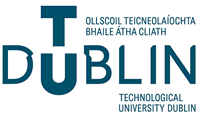Dr C. Wynne, Dr S. Meaney
No more applications being accepted
Competition Funded PhD Project (Students Worldwide)
About the Project
The role of high cholesterol as a risk factor for cardiovascular disease (CVD) is well understood and many campaigns reference ‘bad cholesterol’ and the ‘cholesterol number’. It is less well known that autoimmune diseases such as SLE and RA are independent risk factors for CVD. This increase in risk is due to the inflammatory state present in these conditions and there is merit to this concept as inflammatory processes play key role in the development of CVD. However, despite the importance of the inflammatory process, it is cholesterol itself that initiates the atherosclerotic process that leads to blockage of the arteries. This provides a firm rationale for the role of cholesterol as a risk factor but doesn’t explain the increased risk in autoimmune conditions where cholesterol levels are only modestly elevated. It is known that microparticle (MP) levels are elevated in people at increased risk of CVD suggesting that MPs may have clinical applications as biomarkers, CVD risk prediction, and as potential therapeutic targets.
Our hypothesis is that cholesterol contained in MPs is not processed in the same way as cholesterol present in lipoproteins, the normal cholesterol transporters of the blood. We hypothesise that MP cholesterol enters cells in a more uncontrolled manner, leading to a) poor engagement of cholesterol removal processes, b) initiation of an inflammatory reaction due to bioactive components which c) begins the atherosclerotic disease process. This is independent of traditional ‘bad cholesterol’ pathways. The research team believe that the net effect would be to trigger a parallel pro-atherogenic process that would be accelerated in conditions where the numbers of MPs are increased, i.e. in SLE and RA. The core research question of this study is therefore what is the role of MP cholesterol and does it contribute to the increased risk of CVD in autoimmune conditions? The delineation of the role of MP cholesterol is of key clinical importance and of primary interest to all members of this multi-institutional partnership.
Funding Notes
Stipend of €16,000/year and project costs up to a maximum of 4 years

 Continue with Facebook
Continue with Facebook

